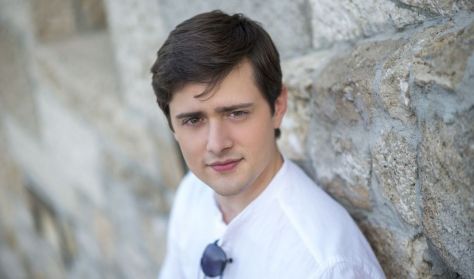Sunday, 15 December 2019, 7.30 pm
Vigadó Concert Hall | Ceremonial Hall
Lukács Season Ticket/2.
...Like the striking of a chord
SMETANA: Vltava (The Moldau)
MARTINŮ: Concerto for String Quartet and Orchestra
***
DVOŘÁK: Symphony No. 8 in G major, op. 88
Koppándi String Quartet, members:
Jenő Koppándi (first violin),
Erzsébet Hutás (second violin),
Dénes Ludmány(viola),
Balázs Kántor (cello)
Hungarian National Philharmonic Orchestra
Conductor: Péter Dobszay
This evening dedicated to Czech music offers up one rarity alongside two popular and well
known works. If there were a list of classical music hits, Smetana's Vltava (The Moldau)
would surely feature near the top. Its main melody sears deeply into the memory as you are
hopelessly lulled into its embrace. Though the melody that appears in the third movement of
Dvořák's Symphony No. 8 is also likely to get stuck in your head for days or weeks on end.
We would describe it as a bittersweet waltz, except that Dvořák composed it in 3/8 time, not
3/4. In the middle of the movement, it changes into a folk melody, before – surprisingly –
ending with a decidedly rustic motif. Between the two Romantic compositions, we will hear
Bohuslav Martinů's concerto for string quartet and orchestra. It is a kind of modern concerto
grosso, with sharp, neo-Baroque and lively movements and one unexpectedly sombre slow
movement. As if it were a premonition of a great cataclysm – akin to the slow movement in
Bartók's Divertimento. Though Bartók composed Divertimento in 1939, when catastrophe
really was imminent. Martinů's work, on the other hand, was written in 1931. It as an age-old
question: to what extent can sensitive artists anticipate the future?






